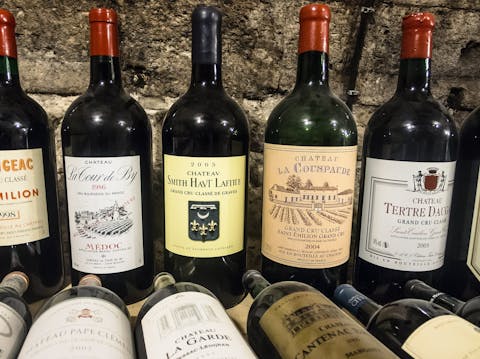How to Value Wine & Spirits
Ever since mankind first stumbled upon the recipe for alcohol, it has been a staple aspect of our collective worldwide culture as a species.
vintage wine bottle with wine glass and rose
Wine has been in production for thousands of years and used for purposes ranging from ritualistic, religious, ceremonial, or merely social. Regardless, drinking wine is a pastime that is deeply engraved into our natural sense of bonding and community, as generation after generation has used this activity as a means to fraternize and connect with peers. Thus it is no wonder that wine and spirits enjoy a status of high regard and even prestige amongst enthusiasts, and collectors are often willing to invest heavily in bottles of particular notability. Do you have an old bottle of wine that you would like to have valued or simply learn more about? The following information will serve as a guide to allow you to do so.
Terroir and producer
The value of wine can be determined by a great multitude of factors. Among these are the reputations of both the terroir and producer. Many vineyards have histories that date back hundreds or more years, and with this longstanding promise of experience and quality of production put into each bottle of wine comes a status of great respect and admiration across the wine community. Bordeaux and Burgundy are among the highest selling most sought after wines. On the other hand, Tuscan wines such as Sassicaia, Tignanello, Ornellaia, Californian wines such as cabernet “Screaming Eagle”, and Champagne releases from Dom Perignon, Krug, Bollinger and Cristal all display great potential and are certainly nothing to be scoffed at on the market, however ultimately they do not perform as well on the market as Bordeaux or Burgundy.

Rarity
As with any other collectible item, the rarer your bottle of wine is, the higher the likelihood is that it will bring in premium prices on the market. Those produced in smaller batches, or less than 20,000 bottles a batch, will have the best return on investment. The longer you wait to sell such a bottle, the rarer it will become as its components decrease in quantity and its demand further exceeds its supply.
Provenance
As is the case with a work of fine art, the provenance of a bottle of wine is highly influential in deciding its market worth due to the drastic effects that manner in which it is stored can have on the product. Fine wine ought to be stored in wooden cases in bond (IB), meaning in a bonded and duty paid warehouse where the climate, temperature, humidity and other environmental factors can be closely regulated.
Vintage and Ageability
It is important to take note of a wine’s vintage, or the year in which the grapes were grown and harvested. Many wine collectors and appreciators care greatly about this aspect of a bottle, as it is believed that a year with a bad climate can result in a bad grape harvest and thus a bad batch of wine.
Another measure to take is to determine how well a bottle of wine will age, as wine is in fact perishable. An optimal wine that is sure to age well will have a higher level of acidity, a higher level of tannins in the case of red wines, relatively lower levels of alcohol, and more sugar.
"...for your most valuable bottles it is recommended to track market prices once a month for a year or two in order to figure out the patterns."
Patience is key
While wine is undoubtedly a profitable investment for any collector, in this line of the market it is important to remain vigilant and patient. An investor should be prepared to house a bottle of wine for at least five years, as wine collecting has a lucrative but slow turnout. One must also be mindful of dips and peaks in the market that occur throughout the year; and for your most valuable bottles it is recommended to track market prices once a month for a year or two in order to figure out the patterns.
Appraisal
Of course the most crucial step to take in finding the value for your bottle of wine is to seek consultation with a professional appraiser. Only an expert in the field will be able to use their expertise and knowledge base acquired from years of study and experience in order to come to the most accurate conclusion as possible in regards to the value of your item. Especially in the case of wine and spirits, the market is nuanced and complicated and even the most intelligent and painstakingly thorough of amateurs would be highly prone to error when seeking to fully understand it. Thankfully there are such trained experts in wine and spirits valuation here at Value My Stuff so that you can seek professional appraisal and valuation as soon as today!

